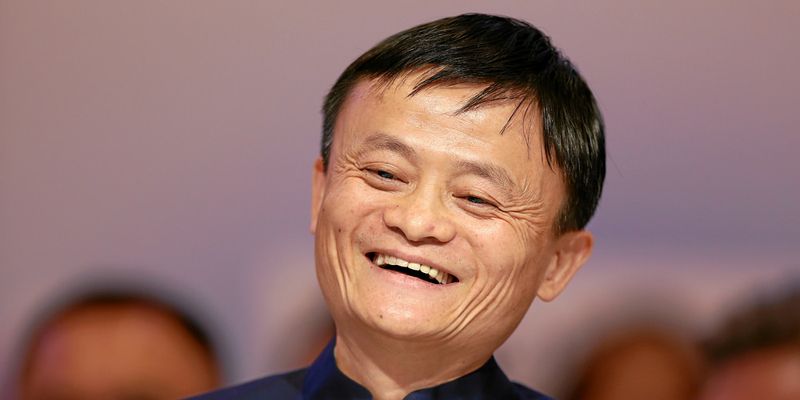What Alibaba’s treasure hunt in India means for e-tail
Amazon and Flipkart may have strong market shares, but Alibaba’s India play focuses on investments in and partnerships with other e-commerce firms.
When World War II ended, a new fear took hold of Western, especially American, hearts and minds. Communism was advancing across Europe and Asia and Americans were worried that countries would fall like dominoes under the influence of the USSR and, later, China. The American response was a strategy called “Containment” – forge partnerships with non-Communist countries and offer them military or economic support. So the US pumped in billions of dollars to re-build war-torn countries, established military bases in Asia and went to war on behalf of countries like South Korea and South Vietnam.
So it is ironic that, decades later, China’s Alibaba is opting for a policy of containment against US’ Amazon in India.
Indian merchants have been able to sell internationally on Alibaba for many years. In 2015, the Chinese e-commerce giant tested the Indian e-commerce market through two investments, in Snapdeal and Paytm. Its Snapdeal investment has not gone anywhere, with the Kunal Bahl and Rohit Bansal led company scaling back operations and opting out of a sale to rival Flipkart. Paytm, on the other hand, has emerged as a strong bet for Alibaba. Paytm managed to ride the digital wave when the Indian Government announced demonetisation, forcing many Indians to adopt digital payments. While digital is still only a small portion of the overall transactions ecosystem, Paytm did get heavy publicity and is easily the most dominant player in that category. Alibaba increased its stake in One97 Communications, the parent company of Paytm, and invested $200 million in the e-commerce arm Paytm Mall this year. The Paytm Mall funding was seen by e-commerce industry watchers as Alibaba formally entering India.

The question on everyone’s mind was whether Alibaba’s India play would be just as an investor in Paytm. With Alibaba and Paytm investing in BigBasket (the official announcement hasn’t been made yet), we are now getting clear indications on the Chinese company’s plans for India.
It is obvious now that Paytm is Alibaba’s “front” in India.
Kashyap Deorah, serial entrepreneur and author of The Golden Tap, the story of the hyper-funded Indian startups, says:
Paytm/One97 is a subsidiary of Alibaba. There should be no confusion about who is driving the long-term strategy.”
Alibaba, along with its payments arm Ant Financials, owns a majority stake in Paytm Mall. Alibaba executives have reportedly camped in Paytm’s Noida headquarters and technology and strategy transfers have already happened, according to company and industry sources. Alibaba’s intent to invest in BigBasket alongside Paytm also clearly shows that its India plans will be routed through the latter.
There was no response to a detailed questionnaire sent to Paytm.
According to our sources, Alibaba is making investments in and entering into partnerships with other e-commerce companies, ranging from logistics players to food delivery apps. The plan, at least for now, is to create a network or alliance of partners with Paytm at the centre.
Grocery segment heating up
What does Alibaba’s increasing aggression in India mean for Indian e-commerce?
Flipkart and Amazon have a head start compared to Alibaba/Paytm. This is more so in mobile phone and fashion, the two categories that account for the most number of units and value of sales for online retail.
Alibaba, through its investment in BigBasket, is clearly looking at grocery to give it an advantage.
Amazon has made some headway in the non-perishable grocery category through Amazon Pantry, now available in around 30 cities. Through Amazon Now the company does in-two-hours delivery of groceries, including perishables, in Bengaluru, Delhi-NCR, Mumbai and Hyderabad through partnerships with Bigbazaar, Spar, Hypercity and other supermarkets. Flipkart, meanwhile, is set to launch its own grocery delivery soon.
Alibaba can clearly build up a strong presence in grocery with an investment in category leader BigBasket, which now services over 20 cities. In the beginning of the year, BigBasket had claimed to be registering 50,000 daily orders on an average. This might seem like a drop in the larger online retail industry, but grocery is the largest category in retail overall.
The retail industry in India was pegged at $640 billion in 2016 and grocery and food retail accounts for more than half of this.
K Vaitheeswaran, the e-commerce pioneer who co-founded India’s first online retail site Fabmart.com in 1999, says:
From an opportunity point of view, grocery is the largest retail category. So it makes sense to focus on this. Also, this is one category where Amazon cannot bring over 20 years of global experience. So it will be more of a level playing field.”
Interestingly, four of BigBasket’s five founders – Hari Menon, VS Sudhakar, Vipul Parekh and VS Ramesh – were co-founders of Fabmart (later called Fabmall). Vaitheeswaran is also author of the recently released business memoir, Failing to Succeed: The Story of India's First E-commerce Company.
Alibaba has experience in grocery – it got into the grocery space in China in 2015 and operates 13 Hema supermarkets now. At Hema, customers can scan the bar-coded grocery products for further details, place orders within the store on their mobile phones and pay through Alipay. The order gets delivered to their homes if they live within a 3km radius of the stores. It will be interesting to see what parts of its experience in grocery retail in China, Alibaba will replicate in India.
While there were reports that Amazon too was interested in acquiring a stake in BigBasket, multiple people YourStory spoke to said the discussions were never serious.
Mrigank Gutgutia, e-commerce expert and Engagement Manager at research and advisory firm RedSeer Consulting, says:
Amazon has focused on building capability in-house, from category to logistics. They believe in doing everything organically, as much as possible.”
Burnt-out competitors, pampered customers
Amazon and Flipkart have carved out strong market shares for themselves, primarily by offering steep discounts and by spending heavily on marketing. It is true that both companies have built up enviable breadth and depth in categories, but price is what brings customers online in India.
Flipkart has raised about $7 billion since 2009. Amazon, on the other hand, had pledged $5 billion to the India market. Both have invested heavily in logistics with their own warehouses and long haul, mid-mile and last mile delivery networks. Amazon, for instance, will close 2017 with 41 fulfilment centres in 13 states in India with a storage space of 13 million cubic feet.
Both the companies now have sales in billions of dollars. However, neither has built a defensible advantage. The Indian online retail market is still only at $15 billion, which is tiny compared to the overall retail market which was at over $640 billion in 2016. What this means is that Fllipkart and Amazon cannot really bank on the lead they have built up versus Alibaba. These two companies may have already spent billions in the Indian market, but Alibaba is just starting its spending spree.
RedSeer’s Mrigank says the online customer base remains the same (while an estimated 100 million are expected to make a purchase online, only about 40 million can be considered active shoppers), so Alibaba will have to burn money to gain customers and the others will have to do the same to retain customers.
So we can expect heavy discounting and through-the-year sales events to continue.
Paytm Mall, which launched operations in February, is spending heavily on marketing with news reports stating that the company has set aside Rs 1,000 crore for advertising and marketing during the ongoing festive shopping period. For their just-concluded first sale during this festive season Paytm announced over Rs 500 crore as cashback to customers shopping on the site. A report in The Economic Times states the company is targeting $500 million in sales this festive season and a Gross Merchandise Value (GMV) run rate of $4 billion by end of the year.
But discounting will not be the only strategy. Paytm Mall has already opted for a different model compared to Flipkart and Amazon. It has launched a QR code-based platform through which offline stores can put up their inventory online. The QR codes, different from the wallet QR codes, are installed within stores too and a customer can place an online order for a product that is out of stock in that store with the code. This O2O model is still at a nascent stage but could give the Paytm-Alibaba combine much needed differentiation, especially at a time when they do not have their own logistics in place.
Indian startups can cheer
Alibaba is clearly open to making investments and acquisitions to speed up growth in the India market. These will be in e-commerce and allied segments like logistics. Apart from BigBasket, Paytm is said to be in acquisition talks with deal discovery app Little, deals site Nearbuy and travel portal Via. It has a majority stake in events site Insider.in and in 2016 had acquired online education marketplace EduKart and online-to-offline retail startup Shopsity. The Alibaba investment will ensure more such deals.
Amazon may be more conservative when it comes to investments and acquisitions, but that does not mean it has not made any such deals in India. There were reports that it is in talks with grocery portal Grofers. Amazon has already made investments in home services firm Housejoy and in online financial services firm BankBazaaar. However, these investments were made in 2015. Flipkart has been an aggressive acquirer with past acquisitions like Myntra, Jabong and Jeeves.
This is good news for the Indian startup ecosystem, where funding and exits have been in short supply. The startup ecosystem in the country produced 178 exits in 2016, according to research firm CB Insights. This might seem impressive but the numbers pale in comparison to the US, which saw over 1650 tech M&As and 25 tech IPOs last year.
The real winner, however, is the Indian e-tail industry. Last year was a bad one for the industry, with growth plummeting to a mere 12 percent compared to the 180 percent growth in 2015, according to RedSeer. But Redseer is projecting a 20 percent growth for the industry in 2017. Mrigank says:
Two global e-commerce majors pumping in money into the country is definitely good news for the industry.”
(With inputs from Sindhu Kashyaap)










![[Startup Bharat] Y Combinator-backed BeWell Digital is enabling the digital transformation of radiologists](https://images.yourstory.com/cs/2/40d66ae0f37111eb854989d40ab39087/ImagesFrames31-1648033042143.png)
